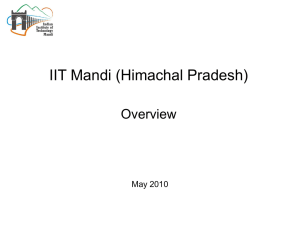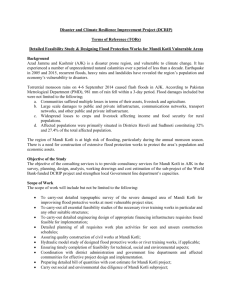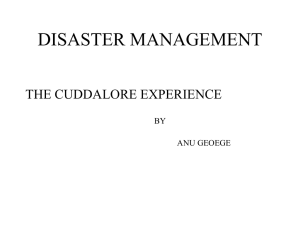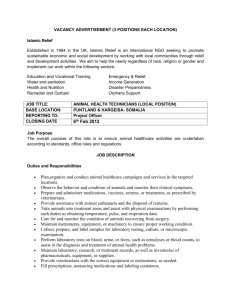Click here for the Kindle version
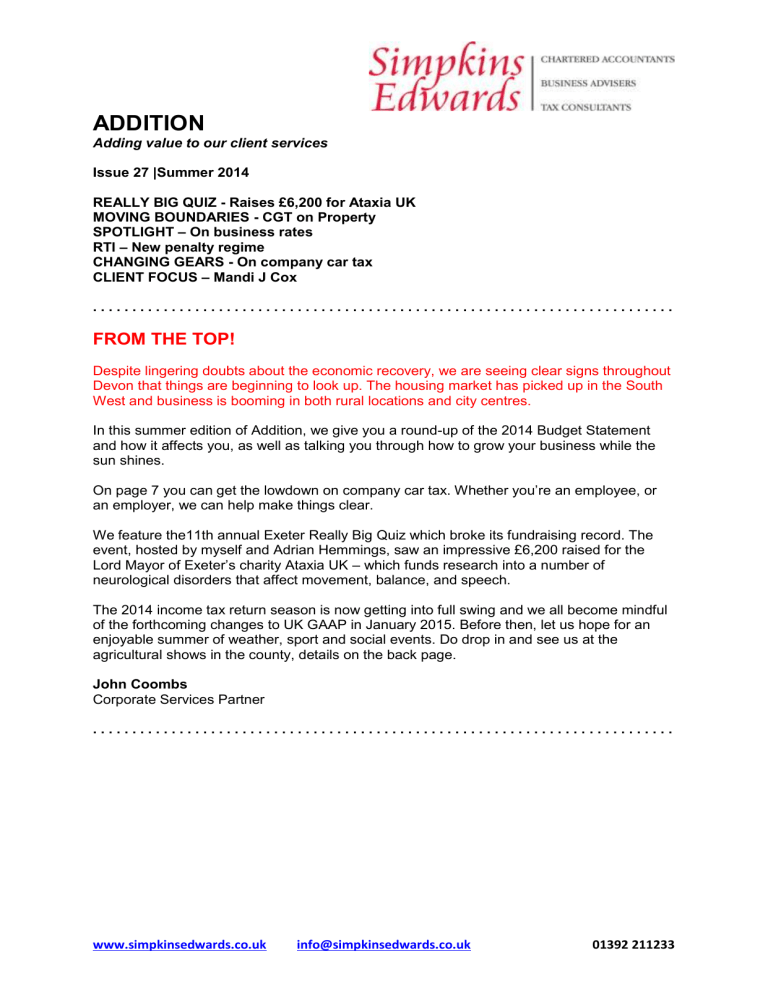
ADDITION
Adding value to our client services
Issue 27 |Summer 2014
REALLY BIG QUIZ - Raises £6,200 for Ataxia UK
MOVING BOUNDARIES - CGT on Property
SPOTLIGHT – On business rates
RTI – New penalty regime
CHANGING GEARS - On company car tax
CLIENT FOCUS – Mandi J Cox
. . . . . . . . . . . . . . . . . . . . . . . . . . . . . . . . . . . . . . . . . . . . . . . . . . . . . . . . . . . . . . . . . . . . . . . . . .
FROM THE TOP!
Despite lingering doubts about the economic recovery, we are seeing clear signs throughout
Devon that things are beginning to look up. The housing market has picked up in the South
West and business is booming in both rural locations and city centres.
In this summer edition of Addition, we give you a round-up of the 2014 Budget Statement and how it affects you, as well as talking you through how to grow your business while the sun shines.
On page 7 you can get the lowdown on company car tax. Whether you’re an employee, or an employer, we can help make things clear.
We feature the11th annual Exeter Really Big Quiz which broke its fundraising record. The event, hosted by myself and Adrian Hemmings, saw an impressive £6,200 raised for the
Lord Mayor of Exe ter’s charity Ataxia UK – which funds research into a number of neurological disorders that affect movement, balance, and speech.
The 2014 income tax return season is now getting into full swing and we all become mindful of the forthcoming changes to UK GAAP in January 2015. Before then, let us hope for an enjoyable summer of weather, sport and social events. Do drop in and see us at the agricultural shows in the county, details on the back page.
John Coombs
Corporate Services Partner
. . . . . . . . . . . . . . . . . . . . . . . . . . . . . . . . . . . . . . . . . . . . . . . . . . . . . . . . . . . . . . . . . . . . . . . . . . www.simpkinsedwards.co.uk
info@simpkinsedwards.co.uk
01392 211233
Really Big Quiz
Once again Exeter’s 11th annual Really Big Quiz broke its fundraising record, raising an impressive £6,200 for the Lord Mayor of Exeter’s charity, Ataxia UK – which funds research into a group of neurological disorders that affect balance, co-ordination and speech.
Guests from 70 teams enjoyed an evening of challenging quiz questions presented by
Simpkins Edwards’ partners John Coombs and Adrian Hemmings, plus a raffle and auction hosted by our guest auctioneer James Morrish of Kivells.
For the third year running James encouraged all guests to play the Heads or Tails game, which, together with the auction and raffle, raised £2,662.
A cheque was presented to Tina Thatcher from Ataxia UK’s HQ in London. The winning team on the night came from Atass Ltd. The Really Big Quiz is an annual social event for
ATASS, and this year they entered a record six teams.
The winners were presented with a trophy to mark their victory, as well as some well-earned champagne. Teams from St Loye’s Foundation and Gilbert Stephens LLP came second and third respectively, winning wine and chocolates.
John commented on a fantastic outcome, “We’re thrilled that so many teams entered this year and helped us raise such a fantastic amount. We’d like to thank everyone who took part and dug deep into their pockets and brains! We’re delighted that the event is so well supported by a large number of people including those businesses who donated raffle and auction prizes and the Sea Cadets who help collect answer sheets each year.
We must also say well done to ATASS who won the trophy this year – we are very grateful to them for their continued support of the Really Big Quiz charity event.”
Next year’s quiz has been confirmed for 13th May 2015.
The new Lord Ma yor, Percy Prowse’s chosen charity is ELF (Exeter Leukaemia Fund).
Contact sroberts@simpkinsedwards.co.uk
to receive an entry form in 2015.
The Really Big Quiz Barnstaple
Is taking place on 19 th November 2014 at the Barnstaple Hotel and will be raising funds for the Barnstaple Town Mayor’s charities; Barnstaple Macmillan Cancer Support and North
Devon Against Domestic Abuse (Women’s Refuge).
To enter a team of five, email sroberts@simpkinsedwards.co.uk
or visit our website for an entry form.
. . . . . . . . . . . . . . . . . . . . . . . . . . . . . . . . . . . . . . . . . . . . . . . . . . . . . . . . . . . . . . . . . . . . . . . . . . www.simpkinsedwards.co.uk
info@simpkinsedwards.co.uk
01392 211233
Capital gains tax: moving boundaries
New tax relief rules announced last year could have an impact on your finances if you let or sell property.
Most people do not have to pay capital gains tax (CGT) when they sell their home for more than they paid for it. Where a person has lived in the property throughout the period of ownership as their only or main residence, private residence relief removes any gain from the charge to CGT.
Even where the property has not been the only or main residence throughout, private residence relief may be available to shelter some or all of the gain as long as the property has at some time been lived in as the taxpayer’s own home. However, some of the timescales governing the relief have now changed.
Final period exemption
Where a property has at some point been lived in as the taxpayer’s only or main residence, the final period exemption removes the final period of ownership from the charge to CGT.
Historically, the relief has applied to the last 24 or 36 months of ownership, meaning that (to
5 April 2014) the last three years of ownership were covered by private residence relief even if the taxpayer was no longer living in the property.
However, last December it was announced that the period qualifying for the final period exemption is to be reduced to 18 months where contracts for the sale of the property were exchanged on or after 6 April 2014. If contracts were exchanged before 6 April 2014 but not completed by that date, relief remained available for the final 36 months of ownership as long as the sale is completed by 5 April 2015. If the sale is not complete by that date, only the last 18 months will be covered by the relief.
Impact
The reduction in the final period exemption will hit those who let a property which they have lived in as their only or main residence and also those who complete on a new property before completing on the sale of the previous home, possibly as a result of a move to start a new job or to relocate to a new area in time for the start of a new school year.
We can help with all of your tax planning needs – please contact us for further information and advice.
. . . . . . . . . . . . . . . . . . . . . . . . . . . . . . . . . . . . . . . . . . . . . . . . . . . . . . . . . . . . . . . . . . . . . . . . . . www.simpkinsedwards.co.uk
info@simpkinsedwards.co.uk
01392 211233
Tax-free beneficial loan limit is doubled
The tax-free threshold for employment related beneficial loan s doubled to £10,000 from 6
April 2014.
The previous £5,000 loan threshold has been in place since it was first introduced in 1994, but the increase to £10,000 will accurately reflect the current levels of such loan arrangements.
The new threshold applies to all beneficial loans such as those used for seasonal travel tickets, business cars or company shares, regardless of when they were taken out. Providing the outstanding balances on the loans do not exceed the new threshold at any time throughout the tax year, there is no tax charge.
. . . . . . . . . . . . . . . . . . . . . . . . . . . . . . . . . . . . . . . . . . . . . . . . . . . . . . . . . . . . . . . . . . . . . . . . . .
Percentage Threshold Scheme is abolished
The Percentage Threshold Scheme (PTS), which allows employers to reclaim Statutory Sick
Pay (SSP), was abolished at the end of the 2013/14 tax year.
From 6 April 2014, SSP is not recoverable for employers, although unclaimed SSP for absences that occurred before the end of 2013/14 can still be claimed until the end of the
2015/16 tax year.
The SSP record keeping requirements associated with the PTS have also been abolished, but employers must still keep records for PAYE purposes and to demonstrate that they are meeting SSP requirements.
The money saved from the abolition of the PTS will fund a new Government scheme, the
Health and Work Service, which will make independent health and work advice more widely available to those who are involved in dealing with employees who are sick for four weeks or more.
. . . . . . . . . . . . . . . . . . . . . . . . . . . . . . . . . . . . . . . . . . . . . . . . . . . . . . . . . . . . . . . . . . . . . . . . . . www.simpkinsedwards.co.uk
info@simpkinsedwards.co.uk
01392 211233
Spotlight on business rates – England and Wales
Business rates have been under the spotlight in recent months.
As the Government consults on further changes to the existing system, we provide an update on the current situation.
How are business rates calculated?
The business rate payable depends on various factors, including the rateable value of the property, the multiplier, and whether the business is eligible for rate relief.
In England and Wales business rates are calculated by multiplying the ‘rateable value’ of the property (set by the Valuation Office Agency) by the business rates multiplier (sometimes called the ‘rate in the pound’). There are currently two multipliers:
• The small business multiplier – for properties with a rateable value of less than £17,999 (or less than £25,500 in London)
• The standard multiplier In the 2013 Autumn Statement the Chancellor confirmed that increases in business rates in England would be capped at 2% in 2014/15. As a result, the small business multiplier for 2014/15 is set at 47.1p, while the standard multiplier is 48.2p.
Small Business Rate Relief
If you run a small business and the property’s rateable value is less than £12,000, you may be eligible to claim Small Business Rate Relief (SBRR).
Other reliefs and exemptions
Certain businesses may also be entitled to other reliefs or concessions, although you will need to contact your local council to determine whether you meet the eligibility criteria.
• Retail businesses – retail properties (including pubs, cafes, restaurants and charity shops) with a rateable value below £50,000 are entitled to a £1,000 business rates discount in
2014/15 and 2015/16.
• Business rates reoccupation relief – A new 50% business rates reoccupation relief is now available to businesses that move into empty premises between 1 April 2014 and 31 March
2016.
• Rural rate relief – Businesses in a rural area with a population below 3,000 may qualify for a business rates discount of between 50% and 100%.
• Charitable rate relief – Charities and community amateur sports clubs can apply for rate relief of up to 80%
• Enterprise Zone Relief – Businesses starting up or relocating to a Government designated
‘Enterprise Zone’ may receive up to 100% business rate relief for five years, up to a maximum of £275,000.
• Certain buildings are also exempt from business rates, and you are not required to pay business rates on buildings that have been empty for three months
For further advice please contact us.
. . . . . . . . . . . . . . . . . . . . . . . . . . . . . . . . . . . . . . . . . . . . . . . . . . . . . . . . . . . . . . . . . . . . . . . . . . www.simpkinsedwards.co.uk
info@simpkinsedwards.co.uk
01392 211233
Company car tax – changing gears
Since 2002 the amount that is charged to tax depends on its level of CO2 emissions, and on the original list price of that car.
The cash equivalent is a percentage, known as the appropriate percentage, of the list price.
The percentage depends on the level of the car’s CO2 emissions. Adjustments are made to reflect optional accessories, any capital contributions made by the employee, any periods for which the car is unavailable and any contributions made by the employee as a condition for the car being available for private use.
Where fuel is provided for private motoring, the benefit is calculated by applying the appropriate percentage as found for company car purposes to the car benefit charge multiplier (‘the multiplier’) for the year.
2014/15 changes
The appropriate percentage for cars with CO2 emissions of 76 to 94g/km is 10% for 2013/14 and 11% for 2014/15. Thereafter the appropriate percentage increases by 1% for every
5g/km increase in CO2 emissions, subject to a maximum charge of 35%.
A 3% supplement applies to diesel cars, again subject to the 35% maximum charge. This means a company car driver who does not change his car faces an automatic tax increase.
Zero and low emission cars
For both 2013/14 and 2014/15 no tax charge arises in respect of zero emission cars
(including electric cars). A 5% charge applies where actual CO2 emissions are 75g/km or less (but more than zero).
The zero and 5% charges come to an end on 5 April 2015. From 2015/16 two new bands apply, one for cars with CO2 emissions of 50g/km or less and one for cars with CO2 emissions of 51to 75g/km. The appropriate percentage are set at 5% and 9% respectively for 2015/16, increasing to 7% and 11% for 2016/17.
Car fuel
The cash equivalent of the benefit of employer provided fuel for private journeys is found by multiplying the appropriate percentage as found for the purposes of the company car charge by the multiplier for the year. For 2013/14 the multiplie r was £21,100 and for 2014/15 the multiplier is £21,700.
There can be many good commercial reasons for providing company cars and vans but those receiving fuel for private motoring are advised to review its merits as the high tax cost means that it is now rarely a tax-efficient benefit.
We can advise you on your business motoring options, including company cars.
. . . . . . . . . . . . . . . . . . . . . . . . . . . . . . . . . . . . . . . . . . . . . . . . . . . . . . . . . . . . . . . . . . . . . . . . . . www.simpkinsedwards.co.uk
info@simpkinsedwards.co.uk
01392 211233
2014 Budget Round-up
Chancellor George Osborne unveiled a series of significant measures affecting businesses and individuals in his 2014 Budget. Here we outline some of the more important points:
Business measures
Annual Investment Allowance (AIA)
The maximum amount of the AIA has been increased to £500,000 for all qualifying expenditure on plant and machinery made from 1 April 2014 for corporation tax and 6 April
2014 for income tax. After 31 December 2015 the limit will be reduced to £25,000.
Enhanced capital allowance (ECA)
The period in which businesses investing in new plant and machinery in ECA sites in
Enterprise Zones can qualify for 100% capital allowances has been extended by three years to 31 March 2020.
Research and development (R&D)
From 1 April 2014 the rate of R&D payable credit for loss making SMEs will be increased from 11% to 14.5%.
Seed Enterprise Investment Scheme (SEIS)
The SEIS and the associated capital gains tax relief for re-investing chargeable gains in
SEIS shares are to be made permanent.
Capital gains tax (CGT)
Roll-over relief allows capital gains tax and corporation tax on chargeable gains to be deferred where the proceeds from disposing of certain eligible classes of qualifying asset are reinvested into new qualifying assets.
A new measure will prevent companies claiming chargeable gains roll-over relief on the disposal of tangible assets where the proceeds are reinvested in an intangible fixed asset.
Personal measures
Allowances and rate bands
From 6 April 2015 the personal allowance for anyone born after 5 April 1948 will be £10,500.
The basic rate limit will be £31,785. The starting rate of savings tax will be 0% to a maximum of £5,000.
Pensions
The Chancellor announced a series of changes to pensions, to apply on or after 27 March
2014, including:
• Increasing the maximum income that a drawdown pensioner with a capped drawdown pension fund can choose to receive to 150% of the ‘basis amount’
• Reducing the minimum income threshold for flexible drawdown to £12,000
• Allowing members over 60, with total pension savings of £30,000 or less, to take out all of those savings as one or more trivial commutation lump sums
• Increasing the size of a small pension pot, which can be taken as a lump sum from £2,000 to £10,000, and the number of personal pension pots that can be taken as a lump sum under the small pot rules from two to three. www.simpkinsedwards.co.uk
info@simpkinsedwards.co.uk
01392 211233
The process of consultation on the new rules for pensions, to be introduced from April 2015, has begun. One key measure is that the new drawdown will be flexible for everyone.
These proposals would mean that retirement choices involve taking a 25% tax-free lump sum, plus:
• Buying an annuity, taxable at marginal rates, or
• Going into flexible drawdown, with no limit on the amount you can draw each year but with the year’s drawdown taxable at marginal rates, or
• Drawing your pension pot in full, and paying tax at marginal rates.
High value residential property
The Government will introduce two new bands for the Annual Tax on Enveloped Dwellings
(ATED).
Residential properties worth over £1m and up to £2m will be brought into the charge with effect from 1 April 2015. The charge for these properties in 2015/16 will be £7,000.
Properties worth over £500,000 and up to £1m will be brought into the charge with effect from 1 April 2016. The charge for these properties in 2016/17 will be £3,500.
Please contact us to discuss how the measures announced in the Budget may affect you and your business.
. . . . . . . . . . . . . . . . . . . . . . . . . . . . . . . . . . . . . . . . . . . . . . . . . . . . . . . . . . . . . . . . . . . . . . . . . . www.simpkinsedwards.co.uk
info@simpkinsedwards.co.uk
01392 211233
The New ISA
From 1 July 2014, ISAs will be reformed into the ‘New ISA’ (NISA).
From that date all existing ISAs will become NISAs, and the overall annual subscription limit for these accounts will be increased to £15,000 for 2014/15.
ISA savers will be able to subscribe this full amount to a cash account and will also be able to transfer their investment from a stocks and shares to a cash account and vice versa.
. . . . . . . . . . . . . . . . . . . . . . . . . . . . . . . . . . . . . . . . . . . . . . . . . . . . . . . . . . . . . . . . . . . . . . . . . .
The new Real Time Information (RTI) penalty regime
Under the new Real Time Information (RTI) regime, employers are now required to provide details of pay and deductions to HMRC electronically by means of a Full Payment
Submission (FPS) at or before the time at which payment is made to the employee.
Until April 2014, the requirement to report ‘at or before’ the time at which the employee received payment was relaxed in relation to small employers. Micro employers (fewer than
10 staff) have been given until April 2016 to prepare for RTI.
Late paid PAYE
Penalties have applied for late paid PAYE since 6 April 2010 where PAYE is paid late on more than one occasion in the tax year. The penalty rate, which is applied to the amount of tax paid late, depends on the number of defaults and tax paid late in the year, as shown in the table. In determining the number of defaults, the first occasion in the tax year on which payment is made late is ignored.
Further penalties of 5% of the amount unpaid are charged if the PAYE and national insurance contributions (NICs) are outstanding after six months and 12 months. This includes the first late payment for the year.
HMRC have now delayed the introduction of in-year late payment penalties for PAYE by one year and any penalties arising in respect of the 2014/15 tax year will be levied after the end of that tax year. However, from April 2015 the penalties will be charged in-year on a quarterly basis. www.simpkinsedwards.co.uk
info@simpkinsedwards.co.uk
01392 211233
Late RTI returns
Many employers migrated to RTI from the start of the 2013/14 tax year. However, penalties for late returns are to be introduced in 2014/15. The penalty will apply where HMRC does not receive an expected FPS return and has not received an Employer Payment Summary
(EPS) to notify that no FPS is due. Only one penalty will be charged for each tax month, even if the employer has to make several FPSs.
The delayed start date means those employers who bring their submissions for the period 5
April 2014 – 5 October 2014 up to date by 5 October 2014 and continue to file on time will not suffer a late filing penalty.
We can assist with PAYE advice or our payroll department can operate your payroll for you – please contact us for further help.
. . . . . . . . . . . . . . . . . . . . . . . . . . . . . . . . . . . . . . . . . . . . . . . . . . . . . . . . . . . . . . . . . . . . . . . . . . www.simpkinsedwards.co.uk
info@simpkinsedwards.co.uk
01392 211233
Grow your business while the sun shines
Many business owners fail to plan adequately and seek help only once it’s too late. Talking to a professional adviser is the best way to a bright future, but there are very simple steps you can take to maximise your chances of growth and reap the benefits of a healthy business.
Planning and measuring
Be sure to make a business plan and refer to it regularly. With new information and a constantly changing economic environment, you may have to change your plans significantly from time to time.
Set up efficient processes for all staff to follow, to help maximise your time.
Knowing your trade
Don’t overstretch yourself trying to be all things to all people. Focus on your core skills or products; aiming for quality where you know you can deliver it. If you operate in a particular sector, ask yourself if there are any additional services that you could cross-sell. Guide the business in that direction, and you could eventually become a onestop- shop for your customers.
Tending to customers
Every manager knows customer service is the root of a healthy business and employees who also understand this will help you succeed. Loyalty schemes and excellent communication are good starting points.
Pruning to perfection
Growth is a process of change, and no business begins fullyformed. Expect to make mistakes and learn from them
– improving quality and making the next stage of your business development better than the last.
Using the right tools
Embracing digital communication methods, such as online advertising and social media, can be a cheap and simple way to promote your business. In contrast, old methods may no longer be worth pursuing. A large sales team, door-to-door selling and cold-calling can be very expensive ways of generating business. Aim for efficiency over expansion.
Loving your business
It’s easy for employees to see when a manager loves what they do. Your genuine enthusiasm is possibly the most inspirational tool you have. A happier team is hard working and focused, which leads to a quality end product.
We can advise on a range of strategies to help you grow your business – please contact us for assistance.
. . . . . . . . . . . . . . . . . . . . . . . . . . . . . . . . . . . . . . . . . . . . . . . . . . . . . . . . . . . . . . . . . . . . . . . . . . www.simpkinsedwards.co.uk
info@simpkinsedwards.co.uk
01392 211233
Client focus: Mandi J Cox
Dancing the dream in East Devon
Exmouth-based Mandi
J Cox is one of Devon’s leading choreographers and dance instructors. She entered the professional circuit whilst studying performing arts and dance at college and has worked both in the UK and abroad, as a choreographer, teacher, cabaret artist and singer, for over 15 years.
In 2005, whilst continuing to perform at festivals, holiday parks, hotels and private functions across the country, Mandi decided to set up Vibes Dance Company at home in Devon, with the vision of sharing her passion for dancing and encouraging more people to discover the health benefits and enjoyment it can bring.
“I have always loved dancing and I truly believe that anybody can dance,” said Mandi. “At
Vibes Dance Company I wanted to offer more than just an exercise class. I wanted to provide an inclusive space that was open to the whole community, where people could come and have fun and socialise.”
Mandi started off teaching a variety of dance styles, including street dance and Latin. In
2009 Mandi became the first person in Exeter to offer Zumba and, not surprisingly, it was a huge success with 50 to 100 people coming along to each class during the first two years.
However, it was the introduction of Mandi’s innovative ‘Swagga Fit’ class in 2010 that she has become best known for locally. Swagga Fit is a non-stop 60-minute dance extravaganza covering dance styles from every decade. There are classes in Exeter and Exmouth and it’s suitable for anybody from age 5 to 85 and beyond.
“There is such a great atmosphere during Swagga sessions – it’s like a big party!” added
Mandi. “Some people come with friends, others come alone and many parents bring their kids for some family fitness fun. We don’t have any divas; people just come along to have a laugh. Some people even sing – the main thing is not to take yourself too seriously.”
Dancing is a popular and effective way of improving fitness levels, flexibility and muscle tone and, according to Mandi, it’s possible to burn up to 1,000 calories in one Swagga Fit session alone.
“It’s definitely a great way of getting fit, but lots of people just do it for the social benefits,” said Mandi. “We do dances from Madonna and Michael Jackson, Britney and Backstreet
Boys.
It’s not about learning lots of tricky steps, so after a couple of classes people find it really easy to follow. It’s what I call ‘proper’ dancing.”
Positive word of mouth and exposure at local events have been key factors in the popularity and growth of Vibes Dance Company and Mandi’s rising reputation as a dance and choreography expert. Mandi and a team of Swagga Fit diehards perform each year at the
Exmouth Festival and Mandi has choreographed performances at dozens of other events in
Devon including Exeter’s Respect Festival, Party on the Quay, East and West Devon Games and the Northcott Theatre Dance Show.
Mandi was introduced to Simpkins Edwards in late 2011 by a friend who works at Exeter’s
Cygnet Theatre. Mandi and her husband wanted to buy a house, but because Mandi was www.simpkinsedwards.co.uk
info@simpkinsedwards.co.uk
01392 211233
self-employed, they needed the help of a Chartered Accountant to help them secure a mortgage.
Mandi has been working with partner Mary-Jane Campbell and her team ever since. While
Mandi’s mum helps her keep her monthly accounts up to date, Simpkins Edwards completes
Mandi’s tax return at the end of each financial year. With Simpkins Edwards’ help Mandi and her husband were able to apply for a mortgage in 2013 and they moved into their home in
Exmouth earlier this year.
“Mary-Jane and her team have been brilliant and I would recommend them to anyone.
Wit hout their help the mortgage companies wouldn’t have gone near me, but now here we are in our lovely house in Exmouth,” said Mandi.
Now fully installed in her new home, Mandi intends to focus on expanding her choreography work through workshops and freelance projects. Her versatile fusion of freestyle, commercial, modern, jazz, musical theatre and street dance, incorporates styles from different decades, as well as specific moves from iconic music videos.
Mandi has a wealth of experience in delivering successful workshops and choreography coaching, having already worked with many local primary and secondary schools, colleges, youth groups, leisure centres, holiday parks and adult groups.
Her training can be tailored to suit all levels of ability, from those with little or no previous experience, to people already working in entertainment or performance arts. “Choreography is where my heart truly lies. I enjoy working with children and adults of all ages, teaching stage presence and audience interaction as well as choreographing, so that everybody feels confident to give their very best performance,” added Mandi.
Looking for professional advice on growing your business in challenging market conditions? Call us on 01392 211233 to see how we can help.
. . . . . . . . . . . . . . . . . . . . . . . . . . . . . . . . . . . . . . . . . . . . . . . . . . . . . . . . . . . . . . . . . . . . . . . . . . www.simpkinsedwards.co.uk
info@simpkinsedwards.co.uk
01392 211233
The taxing side of property lets
If you let out a property you may be entitled to claim allowances for certain equipment. The position changed recently and here we provide an overview of the current situation.
Furnished or unfurnished?
While there is no legal definition of furnished, unfurnished or even part-furnished residential lettings, HMRC guidance suggests that a residential letting is classed as fully furnished if it includes items such as tables, chairs, beds, wardrobes and soft furnishings, as well as white goods (fridge, dishwasher, washing machine etc).Where the accommodation is only let with white goods it is considered partly furnished. However, even partly furnished properties are classed as unfurnished by HMRC and are thus subject to separate tax rules.
Furnished residential lets
Where a taxpayer lets a furnished residential property, plant and machinery capital allowances cannot be claimed on furniture, furnishings or fixtures. By concession, a deduction can be claimed for a ‘wear and tear allowance’ of 10% of the ‘net rent’ from the furnished letting to cover the depreciation of items such as suites, beds, carpets, curtains, linen, crockery, cutlery, cookers, washing machines and dishwashers.
Partly furnished and unfurnished properties
The tax treatment is less favourable where a property is classified as unfurnished or partly furnished. No allowance is made for the cost of furnishings. Tax relief may, however, be available where the costs incurred on equipment can be classified as a repair.
Energy-saving incentives
Until 5 April 2015 landlords installing loft insulation, floor insulation, cavity wall insulation, hot water system insulation and draught proofing may claim an income tax deduction of up to
£1,500 per property, known as the Landlord’s Energy Saving Allowance.
Furnished Holiday Lettings
Different rules apply to Furnished Holiday Lettings (FHLs), which are treated as if they were trades. Unlike residential lettings, the expenses can include capital allowances on furniture and kitchen equipment. Capital allowances are also available on plant and machinery used outside the property (such as vans and tools), although there are no capital allowances for the cost of the property itself or the land on which it stands. However, the 10% wear and tear allowance that you are entitled to if you have an ordinary rental business is not available.
If you are letting out property you should ensure that you are making full use of the tax reliefs and allowances available to you. However, the rules are complex and it is important to seek expert advice – please contact us for assistance.
. . . . . . . . . . . . . . . . . . . . . . . . . . . . . . . . . . . . . . . . . . . . . . . . . . . . . . . . . . . . . . . . . . . . . . . . . . www.simpkinsedwards.co.uk
info@simpkinsedwards.co.uk
01392 211233
Tribunal claimants must seek ‘early conciliation’
Under new ‘early conciliation’ rules, employees seeking to raise a tribunal claim must contact the workplace arbitration body Acas before presenting their application.
The new process means that prospective claimants must contact Acas and provide information regarding the name and address of each of the parties involved. Acas will then have one month to attempt to settle the dispute, after which an ‘early conciliation’ certificate will be issued to the claimant.
A maximum 14 day time extension may be granted where both parties agree, and where there is a reasonable prospect of achieving a settlement.
. . . . . . . . . . . . . . . . . . . . . . . . . . . . . . . . . . . . . . . . . . . . . . . . . . . . . . . . . . . . . . . . . . . . . . . . . .
Web Watch
Essential sites for business owners
www.juniorisas.org/
Advice and information on choosing the right Junior Individual Savings Account www.entrepreneurhandbook.co.uk/
Access articles and ‘how to’ guides on all aspects of running a business www.cyberstreetwise.com
Online safety advice to SMEs and individuals http://startups.co.uk
Website dedicated to helping start up businesses or those looking to expand
. . . . . . . . . . . . . . . . . . . . . . . . . . . . . . . . . . . . . . . . . . . . . . . . . . . . . . . . . . . . . . . . . . . . . . . . . . www.simpkinsedwards.co.uk
info@simpkinsedwards.co.uk
01392 211233
Agricultural Shows
We are looking forward to attending our local agricultural shows this year. Please drop in and join us for some light refreshments
North Devon Show
Wednesday 6 August
Honiton Show
Thursday 7 August
Okehampton Show
Thursday 14 August
Holsworthy Show
Thursday 28 August
. . . . . . . . . . . . . . . . . . . . . . . . . . . . . . . . . . . . . . . . . . . . . . . . . . . . . . . . . . . . . . . . . . . . . . . . . . www.simpkinsedwards.co.uk
info@simpkinsedwards.co.uk
01392 211233
Contacts
Exeter
Michael House, Castle Street, Exeter EX4 3LQ
01392 211233 exeter@simpkinsedwards.co.uk
Partners:
Chris Bowker cbowker@simpkinsedwards.co.uk
Mary Jane Campbell mjcampbell@simpkinsedwards.co.uk
John Coombs jcoombs@simpkinsedwards.co.uk
Adrian Hemmings ahemmings@simpkinsedwards.co.uk
Jean-Paul Quertier jpquertier@simpkinsedwards.co.uk
Jon Williams jwilliams@simpkinsedwards.co.uk
Lynn Woodward lwoodward@simpkinsedwards.co.uk
Barnstaple
21 Boutport Street, Barnstaple EX31 1RP
01271 342233 barnstaple@simpkinsedwards.co.uk
Partner:
Jilly Watson jwatson@simpkinsedwards.co.uk
Okehampton
4 Fore Street, Okehampton EX20 1AD
01837 52485 okehampton@simpkinsedwards.co.uk
Partner:
Rob Bedford rbedford@simpkinsedwards.co.uk
Holsworthy
12 The Square, Holsworthy EX22 6DL
01409 253620 holsworthy@simpkinsedwards.co.uk
Partner:
Jon House jhouse@simpkinsedwards.co.uk
Please note: The articles in this newsletter are for general information only and are not intended to constitute professional advice. No duty of care is assumed to any direct or indirect recipient of the articles and no liability is accepted for any omission or inaccuracy. www.simpkinsedwards.co.uk
info@simpkinsedwards.co.uk
01392 211233
Simpkins Edwards is a Limited Liability Partnership, registered to carry out audit work in the
UK and Ireland and regulated for a range of investment business activities by the Institute of
Chartered Accountants in England and Wales, with registered number OC352993.
The term partner is used to refer to a member of Simpkins Edwards LLP. Registered office:
Michael House, Castle Street, Exeter, Devon, EX4 3LQ.
A list of members is available for inspection at the registered office. www.simpkinsedwards.co.uk
info@simpkinsedwards.co.uk
01392 211233



